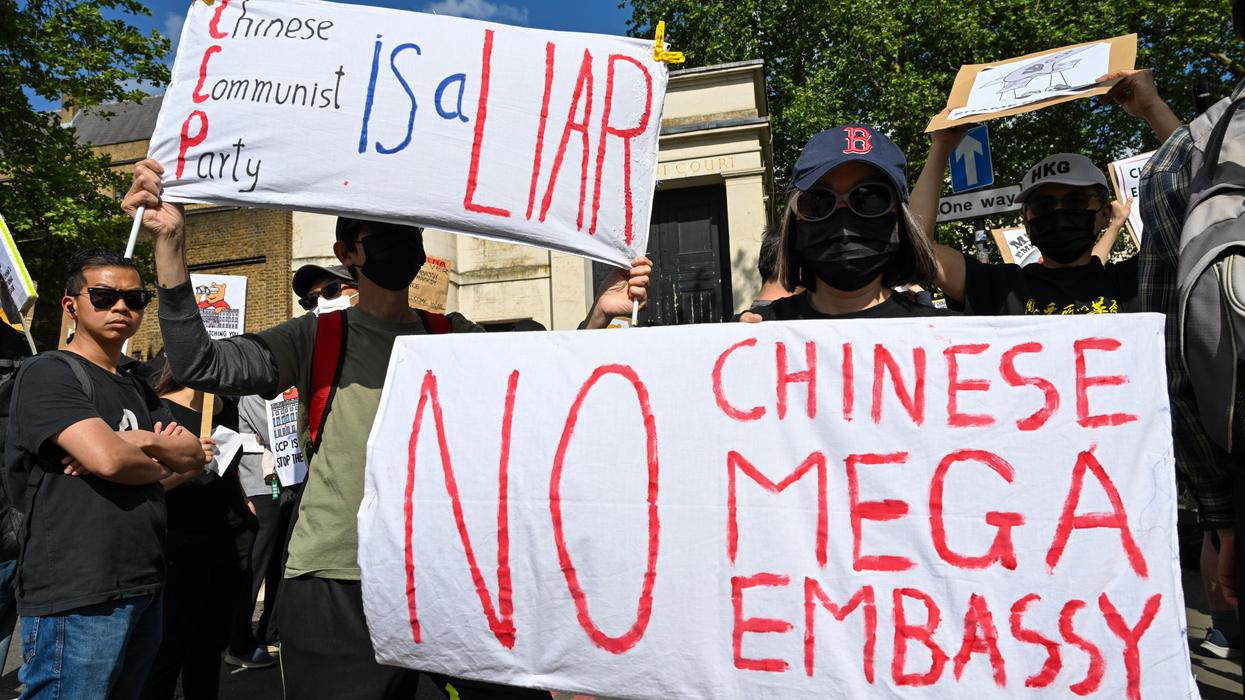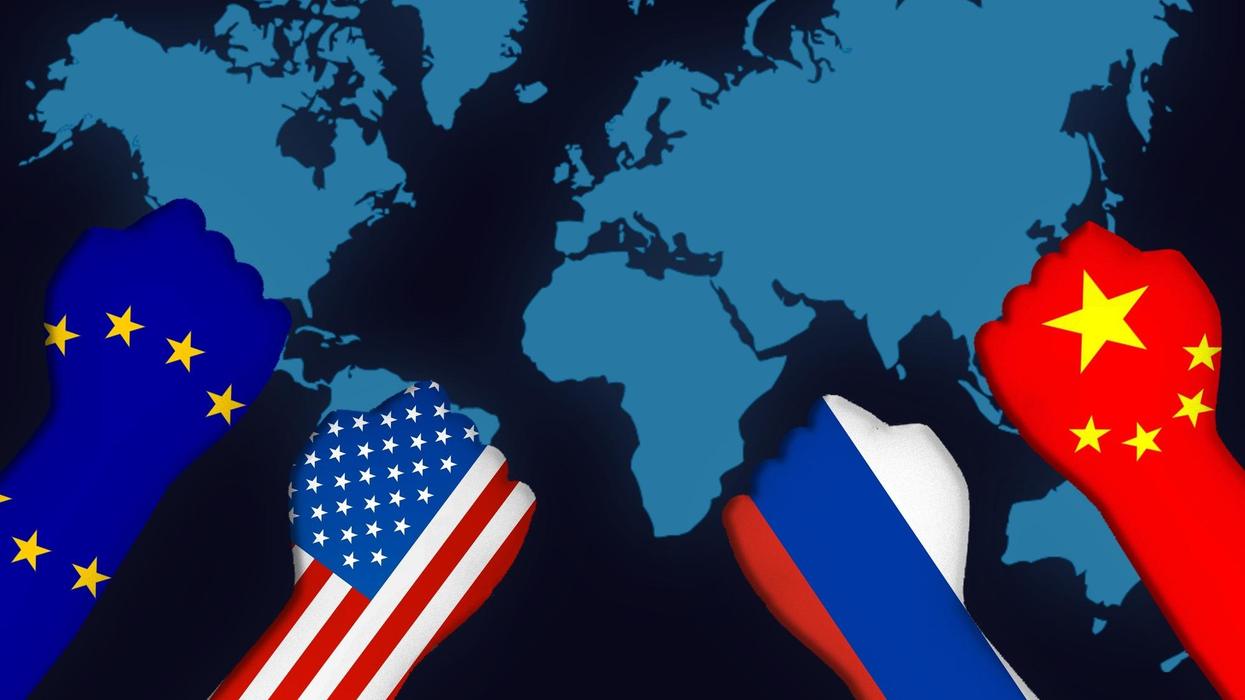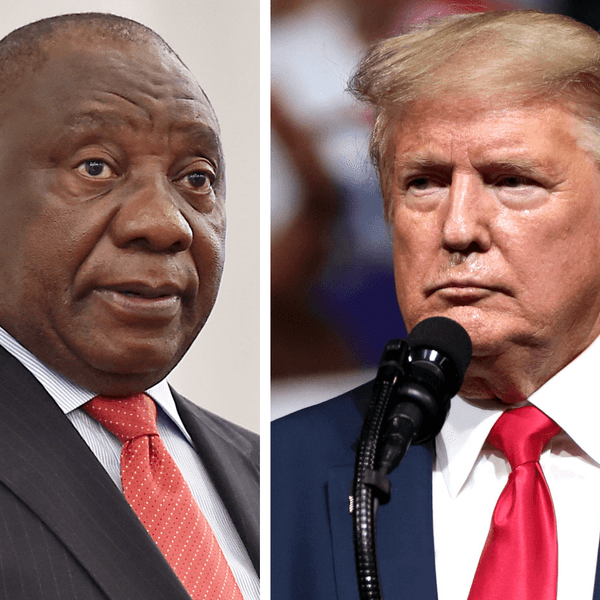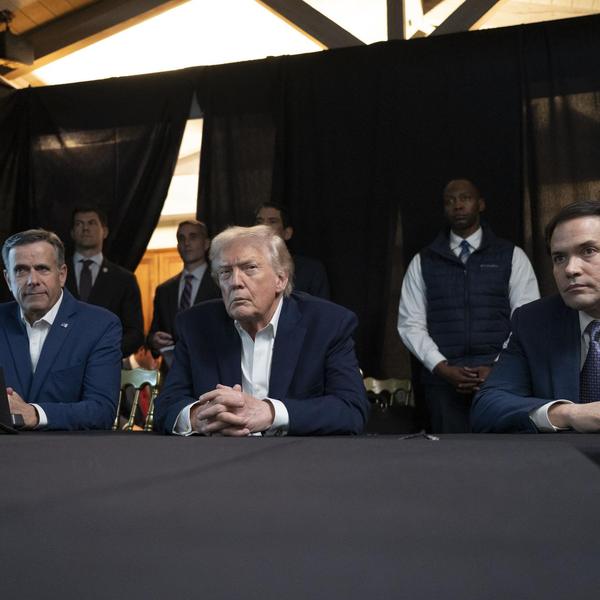As conflicts ignite around the world, dragging on in Ukraine while sparking off in the Middle East, venture capital is banking on defense.
Indeed, United States-based venture capital investment in defense start-ups has doubled in four years. Only investing about $16 billion in 2019, U.S.-based VCs went on to seal over 200 defense and aerospace deals worth nearly $17 billion in the first five months of 2023 alone. Meanwhile, VC giant Sequoia invested in its first defense group, Mach Industries, earlier this year.
Who are the defense VCs?
Through their collective efforts, prominent venture capital firms including billionaire Peter Thiel’s Founders Fund, Andreessen Horowitz (a16z), and Lux Capital are upstarts among today’s rising stars in the defense sector, including Anduril, Hadrian, and Rebellion Defense. And in the process, VCs accrue not only high investment returns, but also growing influence over U.S. foreign policy.
Moreover, VC-backed groups in the defense space are giving established defense contractors like Lockheed Martin and RTX (formerly Raytheon) a run for their money. As Jamie Martin noted on BookForum four years ago, Founders Fund-backed Palantir had beaten out RTX to secure an $800 million army contract, and Elon Musk’s VC-powered SpaceX had been gobbling up satellite sector funds, forcing Boeing and Lockheed Martin to develop their own venture capital operations, Horizon X and Lockheed Martin Ventures respectively, to compete.
Fast forward to 2023 and VC’s domination of the defense space has crystallized in a conflict-mired era. Newcomer machine-parts startup Hadrian was founded only in 2020, but has already soared to the defense industry’s forefront, raising almost $100 million in funding as of late 2023,
Likewise, venture capital has buoyed defense newcomer Rebellion Defense’s rapid rise to prominence, with Rebellion raising $63 million in 2019 through the likes of former Google CEO Eric Schmidt’s new venture capital firm Innovation Endeavors, Founders Fund, and angel investor James Murdoch, son of FOX News Founder Rupert Murdoch. Schmidt, Murdoch, and In-Q-Tel (the CIA’s venture capital firm) Trustee Ted Schlein sit on Rebellion’s Board.
“It doesn’t seem to be that working for the Pentagon is a dirty word anymore,” explains William Hartung, a Senior Research Fellow at the Quincy Institute for Responsible Statecraft. “It seems like a lot of these startups are very much seeking that, and then the VC companies are facilitating it.”
Defense VCs thrive on conflict
At its heart, venture capital is a risky form of private equity financing. Despite the hundreds of billions of dollars U.S.-based VCs invest each year, about 75% of venture capitalist backed start-ups fail.
Success in venture capital, therefore, depends on heavy-handed risk-taking in the hopes of big returns from a few investments. In the defense sector, however, high returns comparable to other VC-frequented industries, like tech, are uncommon, rendering VC investing choices complex.
Ultimately, these coveted, yet elusive returns become more plausible in periods of tension and conflict, when governments — which VC-backed defense groups “depend” on for business-sustaining contracts — have a greater appetite for weaponry and adjacent tech.
Mastering the influence game
In any case, defense-focused VCs are gaming this primary client in their favor: like the U.S. government-defense contractor revolving door’s advocacy for perpetual conflict, VCs are now becoming major Washington influencers while simultaneously jumpstarting defense’s newest and biggest names.
In this respect, billionaire VCs like Peter Thiel and Eric Schmidt are conspicuous for involvement in both sides of government-defense sector relations. While Thiel says he won’t fund candidates in the 2024 race, he’s previously supported a slew of successful Republican congressional campaigns. And after stints as Chief Financial Officer for Thiel’s now-defunct Clarium Capital Management and Chief of Staff at Thiel Capital, Michael Kratsios took White House and Defense Department positions in the Trump administration, giving Thiel closer proximity to power.
Furthermore Rebellion investor Schmidt is a member of the Defense Innovation Board, which advises lawmakers and the Pentagon on tech policies and, as the American Prospect former managing editor Jonathan Guyer writes, is “allocating resources toward the exact technology Rebellion [is] selling.”
Rebellion Defense obtained U.S. Air Force contracts worth up to $950 million in 2020.
According to Guyer, the arrangement suggests “no firewall between Schmidt’s work for the government and the private sector.” Two Rebellion Defense employees also served on the Biden Administration’s Presidential transition team.
Indeed, VCs’ lack of transparency and visibility in the public eye shields their activities in the defense space from critical scrutiny.
“If the head of the Joint Chiefs goes on the board of Lockheed Martin, everybody knows about it,” says Hartung. “If a general goes on the board of some small tech company or as an advisor, that's not as visible. But their activities may actually be more dangerous because they're helping launch a whole new generation of technologies where we don't really know what the consequences will be as they apply to military issues.”
Meanwhile, talk from defense-focused VCs and their beneficiaries’ suggests an urge to stir global tensions, or otherwise convince the Pentagon to prepare for the worst. For starters, VC-powered defense organizations are making their allegiance with Israel clear as it continues to pummel Gaza, with Palantir and Anduril making public pro-Israel statements and Israel employing VC-backed Shield AI’s Nova 2 drone in besieged Gaza.
Moreover, VC groups are poking the stick at China, now a nemesis in what Palantir senior policy adviser Jacob Helberg deems a brewing “tech war.” (Helberg is also a member of the U.S.-China Economic Security and Review Commission, putting him in a prime position to focus lawmakers’ national security-related policy concerns).
Meanwhile, Lux Capital’s website plainly states that China is “a serious threat to U.S. global hegemony.” And a16z Cofounder Marc Andreesen has observed he has more success in policy conversations with lawmakers when he mentions China: “[A]ll of a sudden it’s like, ‘Oh well we need American A.I. to succeed, and we need American technology companies to succeed, and we need to beat the Chinese.’”
Teaming up earlier this year, further, a group of 13 prominent tech companies and adjacent VC groups signed an open letter requesting defense procurement reforms to better open the U.S. defense budget to start-ups. The letter warns that if no changes are made, U.S. “competitors will continue to gain ground on the technological battlefield” leaving American warfighters at a disadvantage on the physical one.
Anduril’s Palmer Luckey even characterized VCs as “hawkish” for the sake of protecting existing investments in a recent interview, observing that “[e]veryone who cares about Ukraine is also watching Taiwan, because…Taiwan going south is an actual existential threat to many of their investments [based there]. And so I think you’re seeing a lot of hawkishness on the part of venture capitalists” as a result.
More bluntly, VC America's Frontier Fund (AFF) representative gloated that "if there is a kinetic event in the Pacific,” referencing Taiwan,“some of our investments will [go up] 10x, like overnight.”
Meanwhile, cash flows suggest VCs’ efforts are paying off: Anduril has earned an estimated $342 million in revenue in 2023, telling investors it’s slated to score $625 million in new government contracts this year. Rebellion Defense’s contracts doubled in 2023 alone. And, despite years of unprofitability, Palantir’s stocks jumped 20% after impressive third-quarter results, in which the company made $72 million in net income. As Palantir’s Alex Karp previously put it, “[b]ad times are very good for Palantir.”
Ultimately, VCs’ success in this sector relies on conflict. In other words, they’re looking for a fight.
- New report shows more than $1B from war industry and govt. going to top 50 think tanks ›
- Weapons firms, donors tied to industry-friendly Atlantic Council report ›
- How VC is busting the Military Industrial Complex — for its own benefit | Responsible Statecraft ›
- Ex-lawmaker excited to cash-in on public service | Responsible Statecraft ›
- Thiel pal and venture capitalist eyed for 2nd highest post in Pentagon | Responsible Statecraft ›
- The AI weapon army goes to Ohio | Responsible Statecraft ›
















